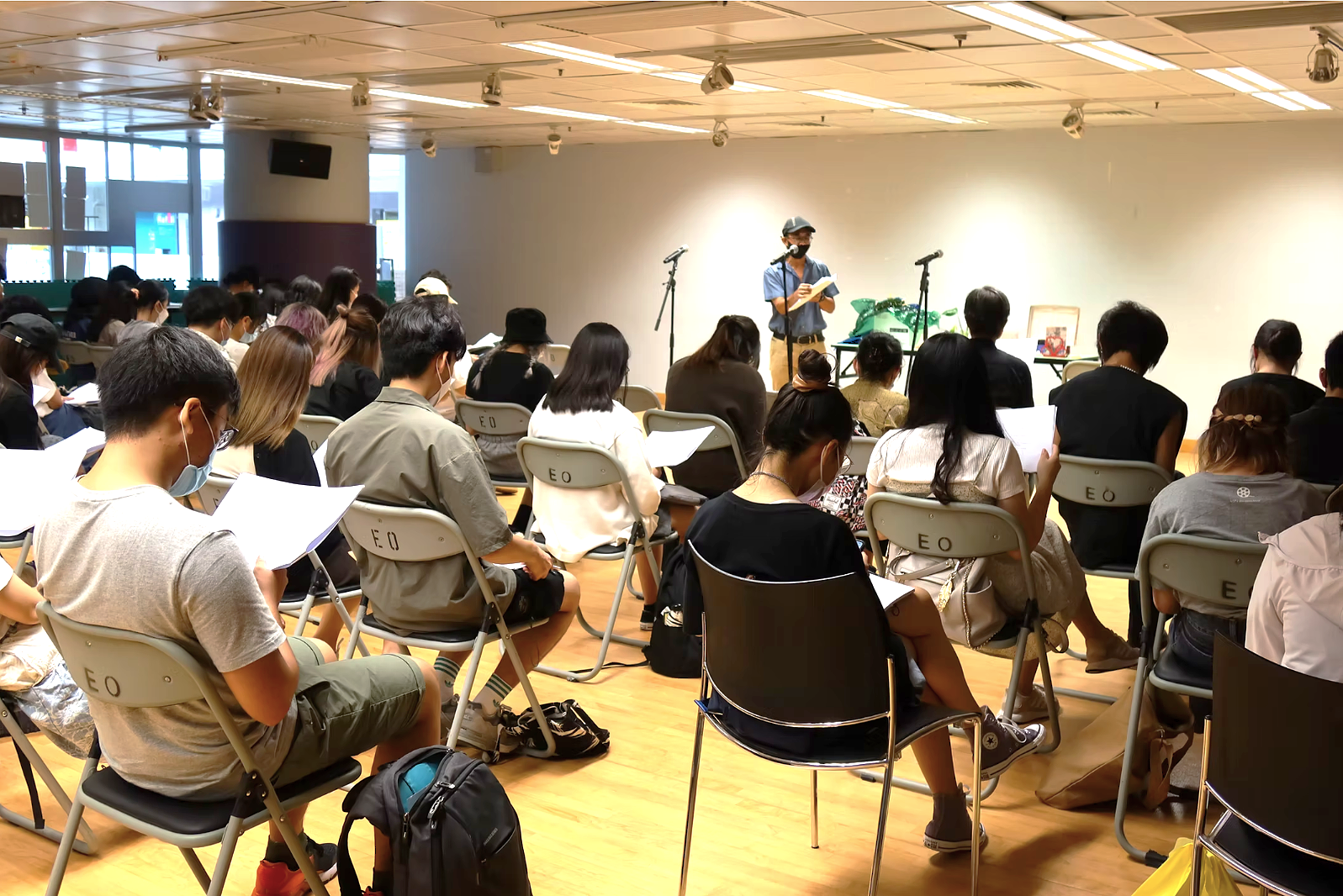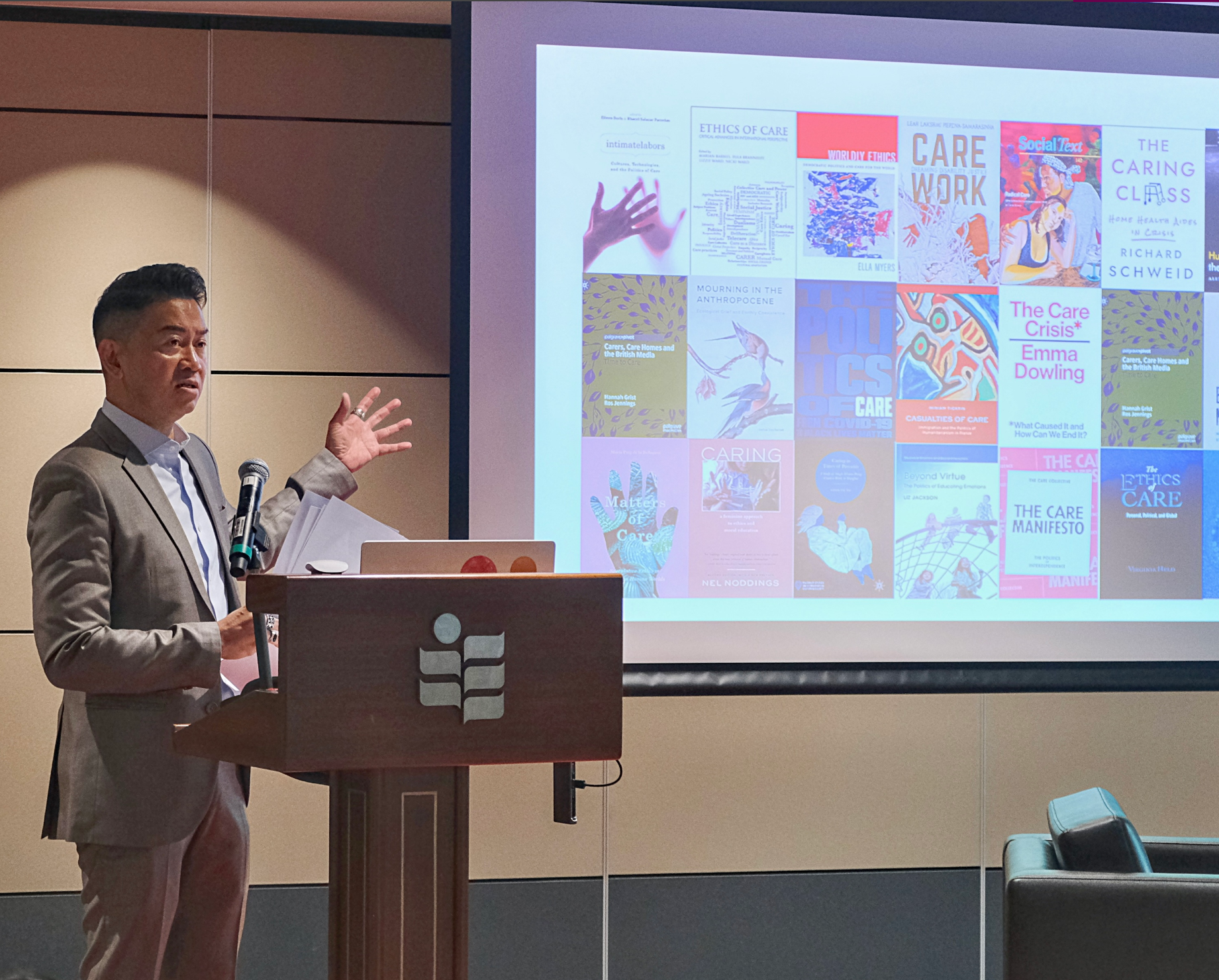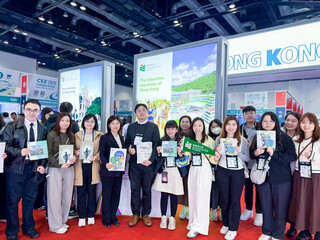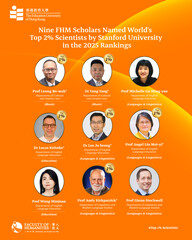IRCCS: Reimagining Cultural Studies for a Connected World
- 2025年08月06日
- 專題故事
- International Research Centre for Cultural Studies (IRCCS)
Interviewer: Andy Ng and Eric Lam
Author: Eric Lam
Photographer: Sherman Tse
The Faculty of Humanities (FHM) has established multiple research centers to enhance expertise across various disciplines, with ongoing interdisciplinary development in digital humanities, comparative cultures of care, and sustainable humanities. Following previous spotlights on other research centers, this issue of FHM Research Bulletin features the International Research Centre for Cultural Studies (IRCCS).
Over the past three years, IRCCS has achieved substantial milestones that underscore its dynamic role in advancing cultural research. Its core members have secured 13 RGC-funded projects, yielding a remarkable output of over 100 scholarly publications. The Centre has also demonstrated strong leadership in convening academic dialogues, having hosted six international conferences and two local symposia that brought together distinguished scholars, practitioners, and community stakeholders.
Under the leadership of Director Prof John Erni, IRCCS has flourished as a premier institution for cultural research and public engagement in Hong Kong. After taking the helm, Prof Erni reinvigorated the Centre's predecessor—The Centre for Popular Culture in the Humanities—rebranding it with renewed vision and purpose. Today, IRCCS stands as a distinguished presence among respected peers such as The Centre for Cultural Studies at The Chinese University of Hong Kong and The Centre for Cultural Research and Development at Lingnan University.
In an extensive interview with Research Bulletin, Prof Erni outlined the Centre's research priorities and strengths, discussing its response to emerging trends, strategic partnerships, future directions, and his proudest achievements at IRCCS.
IRCCS Director Prof John Erni
Research Priorities: Three Key Foci
IRCCS currently prioritises three strategic research areas that demonstrate its commitment to addressing pressing socio-cultural challenges: Critical Migration Studies, Comparative Cultures of Care: An Interdisciplinary Project, and the community-driven One City One Book Hong Kong initiative.
I. Critical Migration Studies
Critical Migration Studies adopts a multidisciplinary approach to examining the cultural, ethical, and political dimensions of human mobility. Drawing on refugee studies, diaspora theory, transnationalism, and human rights philosophy, this research track investigates how migration and displacement are represented and experienced across diverse contexts.
The flagship project in this area, ‘Thanatic Ethics: The Circulation of Bodies in Migratory Spaces’, led by Associate Director Dr Bidisha Banerjee, has generated an active global research network since its launch in 2020. This initiative has yielded notable scholarly outputs, including special journal issues and an innovative collaborative graphic novel that translates complex migration theories into accessible visual narratives.
II. Comparative Cultures of Care: An Interdisciplinary Project
Comparative Cultures of Care (CCC): An Interdisciplinary Project represents a comprehensive response to the global ‘care deficit’ highlighted by the COVID-19 pandemic. The innovative project is structured around five interconnected components: an international reading series on care ethics, youth leadership training, integration of care ethics into pedagogy, a volunteer-based immersion programme, and the development of an interactive digital archive of care resources.
III. One City One Book Hong Kong
One City One Book Hong Kong (1C1B), a collaboration between IRCCS and the Department of Literature and Cultural Studies, stands as an innovative community reading programme. This initiative fosters literary citizenship and cultural dialogue by inviting the entire city to engage with a single shared text each year.
Since its inception, 1C1B has celebrated works by acclaimed authors including Shaun Tan, Xi Xi, Yam Gong, and Ng Hui Bun, catalysing citywide engagement through an extensive programme of public lectures, creative workshops, guided literary tours, and interactive cultural events that transform private reading into collective experience.

Poetry reading event of One City One Book Hong Kong
Research Strengths: Interdisciplinary Breadth & Knowledge Transfer
IRCCS distinguishes itself through interdisciplinary breadth, methodological innovation, and a strong commitment to public engagement. "Our research strengths are rooted in cultural theory, digital and environmental humanities, critical migration studies, and comparative cultures of care," Prof Erni explains. The Centre’s core strengths lie in:
I. Interdisciplinary Breadth
IRCCS brings together scholars across diverse disciplines—including cultural studies, media, sociology, gender, education, literature, and heritage studies—to address pressing cultural and social questions with academic rigor and public relevance. This collaborative approach enables the Centre to examine complex phenomena from multiple perspectives, generating insights that transcend traditional disciplinary boundaries.
II. Impactful Knowledge Transfer
Knowledge transfer (KT) represents another core strength, with IRCCS organising over 120 KT activities including community-based workshops, public talks, and outreach initiatives that translate academic research into practical applications. "These recognitions collectively affirm IRCCS's position as a vibrant hub of scholarly innovation and public engagement," the Director notes.
Emerging Trends: Evolving Digital Landscape
Today, new digital practices—from algorithmic culture to AI-driven healthcare—continue to reshape how we live, communicate, and care. IRCCS plays a pivotal role in interpreting this evolving landscape. Prof Erni identifies several emerging trends driving the Centre's research agenda, including care ethics, digital and algorithmic culture, environmental humanities, and interdisciplinary methods such as ethnography, visual studies, and diary/memory studies. "The rise of AI, big data, and algorithmic governance has disrupted traditional practices," he observes, "but it also invites us to fundamentally rethink subjectivity, ethics, and meaning-making in the digital age.
“The Centre fosters critical dialogue around emergent practices”, he adds. For example, it recently hosted a talk by Prof Tejaswini Niranjana on ‘Digital Intimacy: Young Women in Inter-Asia’, which examined how digital technologies are reshaping perceptions of intimacy across cultural contexts. Its newly launched Working Paper Series also features timely contributions that explore the intersections of digital health, care infrastructures, and algorithmic culture. This series acts as a unique platform to strengthen young scholars and students’ engagement, particularly across Asia, through personalised editorial feedback and revision guidance.
Incubator and Catalyst: Advancing FHM’s Strategic Foci
The Centre plays an essential role in advancing the Faculty’s strategic priorities, acting as both an incubator and a catalyst for research and pedagogical innovation. “Our two major initiatives—CCC and the Sustainable Humanities (SUSHUM)—embody the Faculty’s core foci and serve as exemplary models of interdisciplinary collaboration,” the leader emphasises.
Through its integration into Theorising Care online learning series, youth training programmes, pedagogy and curriculum revamp, and the EduCare Portal, CCC is pioneering new approaches within the Digital Humanities by leveraging online platforms, digital storytelling techniques, and sophisticated archiving tools to reimagine how care ethics can be taught, documented, and practiced in contemporary contexts.
Likewise, SUSHUM demonstrates how art, science, and humanistic inquiry can converge to promote ecological and social sustainability. Its portfolio of 13 inter-connected sub-projects—including eco-walks, visual storytelling, and community-based workshops—reflect the Centre’s commitment to bridging rigorous academic research with public engagement and sustainability goals, aligning with the United Nations Sustainable Development Goals.
IRCCS plays an essential role in advancing FHM’s strategic priorities
His Proudest Project: CCC
“While I find all our projects enriching, particularly as each of them has established excellent research agendas in their respective fields, I’m particularly proud of the CCC project,” the Director beams. “What makes CCC especially meaningful is its holistic reconceptualisation of care—not simply as a virtue or service, but as a profound relational, cultural, and ethical framework capable of transforming education, policy, and civic life.”
What he finds most inspiring is how this project elegantly bridges the academic and the everyday practice. It demonstrates the unique power of the humanities to nurture moral imagination and build resilient, inclusive communities. “In a world increasingly dominated by technological change, CCC reminds us that cultivating care is a radical and necessary act of scholarship —one that reconnects intellectual inquiry with human flourishing,” he adds with conviction.

Prof Erni introducing the ‘Comparative Cultures of Care: An Interdisciplinary Project’ at a conference
Future Directions: Enhancing Research Portfolio & Global Engagement
I. Expanding Research Portfolio
“Looking ahead, IRCCS will implement strategic approaches like infrastructure development, international partnerships, and structured research incubation to generate the critical mass necessary for expanding our research portfolio," Prof Erni outlines. Three priority research areas will guide future development: digital cultural studies, environmental humanities, and new social justice studies. The Centre will establish regular ‘research incubation workshops’ designed to engage members' diverse interests and cultivate innovative projects over the next three years. Additionally, the Centre will organise major international conferences aligned with each research theme, creating opportunities for wide-ranging intellectual exchange and tangible publication outputs.
II. Deepening Global Engagement
The Centre will strategically build new international partnerships while strengthening existing collaborations, catalysing joint research initiatives, facilitating meaningful academic exchanges, and optimising shared resources. “With the support of our forthcoming International Advisory Board, we are committed to deepening our global engagement and enhancing the Centre’s capacity as a research consortium dedicated to cultural innovation and social transformation,” Prof Erni says.
The Essence of IRCCS: Culture as Care
When asked to distill the essence of IRCCS into a single word, Prof Erni thoughtfully selects ‘care’. "Care is one of the older meanings of culture as in agriculture,'" he explains with scholarly precision. "The Centre studies culture precisely because it recognises culture as a profound mode of caring. Through the Centre's deliberate care practices, we aspire to nurture not only the preservation of cultural artifacts but also the development—or more specifically, the cultivation—of caring and culturally engaged individuals."
This perspective elegantly aligns with IRCCS's commitment to exploring culture as a vital means of nurturing human connection and catalysing meaningful social transformation. As Prof Erni concludes with a cinematic reference: "As we look towards to the future, the Centre maintains a positive outlook and embraces the unknown rather than fearing it. In the film, Back to the Future, the scientist Doc Brown quipped: 'Roads? Where we're going, we don't need roads!' The possibilities of our collective future are complex. Traditional pathways may no longer serve our evolving needs. Yet the Centre stands prepared to venture forward confidently, even where established routes have yet to be forged."
Prof Erni distills the essence of IRCCS into a single word ‘care’
Ending
As IRCCS evolves, it remains committed to advancing cultural studies through innovative research and public engagement. The Centre bridges academic inquiry with community care, creating spaces where diverse voices can be heard and collective futures imagined.
"Cultural studies is not merely about analysing texts—it's about nurturing ethical imagination and fostering social transformation," emphasises Prof Erni. His cinematic reference to Back to the Future reflects IRCCS's readiness to forge new paths where traditional approaches no longer suffice, ensuring Hong Kong's cultural voice resonates both locally and globally while creating impact that extends far beyond academia.





